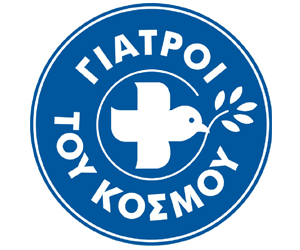Πρόσκληση να επισκεφθεί την Σπάρτη και να γνωρίσει από κοντά την πόλη και την λαμπρή ιστορία της, έστειλε στον πρωθυπουργό του Ηνωμένου Βασιλείου κ. Μπόρις Τζόνσον, ο δήμαρχος της Λακωνικής πρωτεύουσας κ. Πέτρος Δούκας, απαντώντας στον Βρετανό πρωθυπουργό, για τα περί Σπάρτης και αν η διακυβέρνησή της ήταν “Militaristic”.
Στην επιστολή του ο δήμαρχος Σπάρτης αναφέρει – μεταξύ άλλων – ότι, η Σπάρτη ήταν δημοκρατία των πολιτών με ένα πολύ προοδευτικό και σύνθετο σύνταγμα.
Επισημαίνει πως μπορεί οι αρχαίοι Σπαρτιάτες να μην υπήρξαν παραγωγικοί συγγραφείς ή οικοδόμοι μεγάλων οικοδομημάτων, αλλά κράτησαν την πόλη τους ελεύθερη και δημοκρατική για περίπου 6 αιώνες – χωρίς διακοπή!
Ο κ. Δούκας υπογραμμίζει ακόμη ότι, στην πραγματικότητα, η Δυτική δημοκρατική πολιτική κληρονομιά μας, τα Ρωμαϊκά και Αμερικανικά Συντάγματα, αλλά και το βρετανικό πολιτικό σύστημα με τη συνταγματική Μοναρχία, την Βουλή των Λόρδων και τη Βουλή των Κοινοτήτων, φέρουν περισσότερη ομοιότητα με το Σύνταγμα του Λυκούργου της Σπάρτης (830 π.Χ.)
Τέλος, ο δήμαρχος Σπάρτης αναφέρει, παρακαλώ δεχτείτε την πρόσκληση του Δήμου Σπάρτης να επισκεφθείτε, ως καλεσμένους μας, την μεγάλη πόλη μας και να δοκιμάσετε τη φιλοξενία και την ιστορία μας!
Ολόκληρη η επιστολή του Δημάρχου Σπάρτης έχει ως ακολούθως:
THE MAYOR OF THE CITY OF SPARTA
The City of Sparta
14/09/2019
Your Excellency,
Dear Prime Minister
Dear Boris,
Talking to grade students in London you were kind enough to refer to our great City!
Just to clarify some issues about Sparta!
Sparta was a citizens’ democracy with a very progressive blended constitution!
Full power primarily rested with:
1. The people’s General Assembly (the Apella)
2. The 5 Ephors (commissioners), who represented the dēmos (the common citizens) of Sparta and were chosen by the dēmos (probably by lot, for a single, one-year term only), with overwhelming civil and executive powers,
3. The 28 Senators of over 60-years old, elected by the people’s assembly, and with,
4. The hereditary two kings from the two Royal houses of Sparta, who kept watch on each other (checks & balances) and whose coronation, was only subject to approval by the Senate and the ephors and the Apella only in very few cases of ‘biological’ dispute or allegations of treason!
The kings were Commanders-in-Chief, only at times of war, but war was a matter to be decided by the people’s assembly and the 5 ephors, and not by some military junta!
All Spartan kids from the age of 7, received the same tough public schooling (basic math, grammar and reading, music, dance and gymnastics), basically so they would be ready to defend their freedom and their City from tyranny and foreign invaders!
In fact our Western democratic political heritage, the Roman and US Constitutions, but also the UK political system with its constitutional Monarchy, its House of Lords and its House of Commons, bear more resemblance to Lycurgus’ Constitution of Sparta (830 BC), than the various constitutions of Athens that were frequently subject to change as Aristotle noted!
Pausanias, the geographer, described Sparta as a pretty nice city, albeit not as impressive as Athens!
But as the greatest historian Thucydides [A.10.2] wrote, a future traveler, just by looking at the buildings in Sparta, would probably feel that Sparta was something much less than it actually really was (as it was built in separate neighborhoods rather than in one grand central city), while Athens would appear to be twice as glorious and impressive, than it actually was!
[Λακεδαιμονίων γὰρ εἰ ἡ πόλις ἐρημωθείη, λειφθείη δὲ τά τε ἱερὰ καὶ τῆς κατασκευῆς τὰ ἐδάφη, πολλὴν ἂν οἶμαι ἀπιστίαν τῆς δυνάμεως προελθόντος πολλοῦ χρόνου τοῖς ἔπειτα πρὸς τὸ κλέος αὐτῶν εἶναι (καίτοι Πελοποννήσου τῶν πέντε τὰς δύο μοίρας νέμονται, τῆς τε ξυμπάσης ἡγοῦνται καὶ τῶν ἔξω ξυμμάχων πολλῶν· ὅμως δὲ οὔτε ξυνοικισθείσης πόλεως οὔτε ἱεροῖς καὶ κατασκευαῖς πολυτελέσι χρησαμένης, κατὰ κώμας δὲ τῷ παλαιῷ τῆς Ἑλλάδος τρόπῳ οἰκισθείσης, φαίνοιτ᾽ ἂν ὑποδεεστέρα), Ἀθηναίων δὲ τὸ αὐτὸ τοῦτο παθόντων διπλασίαν ἂν τὴν δύναμιν εἰκάζεσθαι ἀπὸ τῆς φανερᾶς ὄψεως τῆς πόλεως ἢ ἔστιν.]
Earthquakes, Alaric the Visigoth (396 AD) and the lunatic French archaeologist Michel Fourmont (1690-1746), destroyed what was left, of the otherwise pretty and attractive City!
Yes, the Spartans were not prolific writers or speakers, or builders of great edifices, but kept their City free and democratic for about 6 centuries – uninterrupted!
And if they appeared weary of foreigners, it was because they felt that the foreigners could corrupt the centuries-old Spartan virtues (and unsettle the balance with the suppressed helot class).
Sparta was the only city and the only State ever, whose constitution managed to ensure normal successions of power with no coup d’etas!
That is why the ancients themselves admired Sparta much more than Athens!
Your Excellency,
Please accept The Δήμος of Sparta invitation to visit, as our guests, our great City and taste our hospitality and history!
Best Regards,
Petros G. Doukas, Ph.D, Econ. NYU
-Mayor of The City of Sparta
-Chairman, The International Chamber of Commerce – Greece
-fm. Member of the Greek Parliament
-fm. Deputy Minister of Finance
-fm. Deputy Minister of Foreign Affairs
ΣΗΜΕΙΩΣΗ: Αξίζει να αναφέρουμε ότι η επιστολή του δημάρχου Σπάρτης στον Μπόρις Τζόνσον, προκλήθηκε από την ομιλία του πρωθυπουργού της Βρετανίας σε μαθητές σχολείου στο Λονδίνο. Εκεί ο Μπ. Τζόνσον, αφού επαίνεσε την κλασική παιδεία (που και ο ίδιος ανέφερε πως έχει λάβει), προχώρησε σε σύγκριση των αρχαίων πόλεων – κρατών Αθήνας και Σπάρτης, αναφέροντας ότι η Αθήνα άφησε πίσω της δοξασμένες στιγμές, ενώ η στρατιωτική πόλη της αρχαίας Σπάρτης άφησε πίσω ερείπια.
Οφείλουμε όμως να υπογραμμίσουμε ότι αξίζουν συγχαρητήρια στο Δήμαρχο Σπάρτης, Πέτρο Δούκα, που ως έμπειρος πολιτικός, αξιοποιεί έξυπνα την ομιλία του Βρετανού πρωθυπουργού προς όφελος της πόλης του.






















